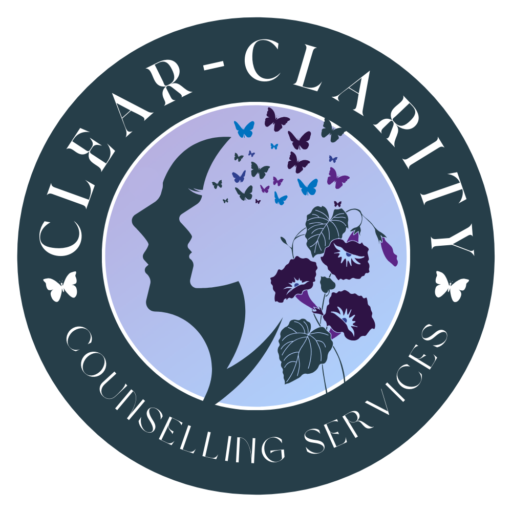Online support from Clear-Clarity Counselling Services in Gillingham Kent
Self-esteem is how we value and perceive who we are. It’s created by our opinions and our beliefs about ourselves and our belonging in the world. We might also think of this as self-confidence.
Your self-esteem can affect whether you:
- Like and value yourself as a person
- Can make decisions and assert yourself.
- Recognise your strengths.
- Feel able to try new or difficult things.
- Move past mistakes without blaming yourself unfairly.
- Believe you matter and are good enough.
- Believe you deserve happiness.
What can cause low self-esteem?
Our self-esteem can be affected in many ways and no 2 people will experience it the same. Your self-esteem might or can change suddenly. Or you may have had low self-esteem for some time.
There are lots of things in life that may contribute to low self-esteem, it can affect any walk of life.
- Being bullied or abused.
- Experiencing prejudice, discrimination and racism.
- Unemployment, or difficulty finding employment.
- Work related issues or while studying.
- Physical health problems.
- Mental health problems.
- Relationship problems, separation or divorce.
- Problems with money or housing.
- Worries about your appearance and body image.
- Pressure to meet unrealistic expectations, an example might be through social media.
You might have had some of these experiences. Or you may have difficulties that aren’t listed here. Or there might not be only one cause.
If you struggle with low self-esteem, it might feel as if making changes will be difficult. But there are things you can try.
How does low self-esteem affect us?
If you have low self-esteem or confidence, you may hide yourself away from social situations, stop trying new things, and avoid things you find challenging.
In the longer term, this can backfire because it reinforces your underlying doubts and fears. It teaches you the unhelpful rule that the only way to cope is by avoiding things.
Living with low self-esteem can harm your mental health and lead to problems such as depression and anxiety.
How to develop healthy self-esteem
Start by identifying the negative beliefs you have about yourself, then challenge them.
You may tell yourself you’re “not good enough” to apply for a new job, for example, or that “nobody cares” about you.
Write down your negative thoughts on a piece of paper or in a diary. Ask yourself when you first started to think these thoughts.
Next, start to write some evidence that challenges these negative beliefs, such as, “I’m really good at sports/listening/offering support to others” or “My sister/mum/friend calls for a chat every week”.
Write down other positive things about yourself, such as “I’m thoughtful” or “I’m a great cook” or “I’m someone that others trust”.
Also write down some good things that other people say about you.
Aim to have at least 5 positive things on your list and add to it regularly. Then put your list somewhere you can see it. That way, you can keep reminding yourself that you’re OK.
Build positive relationships
If you find certain people tend to bring you down, try to spend less time with them, or tell them how you feel about their words or actions.
Try to build relationships with people who are positive and who appreciate you. Or maybe approach a counsellor where you can share you feelings with someone who will truly listen and help you find a way to understand what’s happening.
Be kind to yourself
Being kind to yourself means being gentle to yourself at times when you feel like being self-critical.
Think what you’d say to a friend in a similar situation. We often give far better advice to others than we do to ourselves.
Start saying “no”
People with low self-esteem often feel they have to say yes to other people, even when they do not really want to.
The risk is that you become overburdened, resentful, angry, and can develop low-mood..
For the most part, saying no does not upset relationships. It can be helpful to keep saying no, but in different ways, until they understand it’s too much for you.
Set yourself a challenge
We all feel nervous or afraid to do things at times. But people with healthy self-esteem do not let these feelings stop them trying new things or taking on challenges.
Set yourself a goal, such as joining an exercise class or going to a social occasion. Achieving your goals can help to increase your self-esteem.

About the Author
My name is Linda Thompson, I am a qualified and insured counsellor working in Gillingham and Medway, Kent. I support individuals and couples with all kinds of issues, from bereavement to anxiety, relationship difficulties, trauma, abuse and coping with the general stressors of life. Please get in touch to book a session with me. Join me on Facebook.

